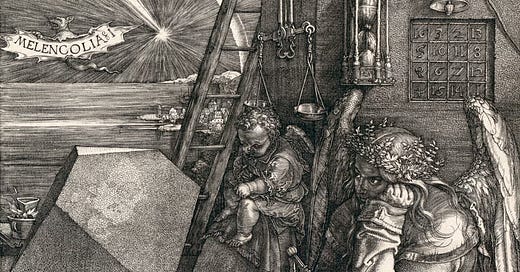How I became a poet
I have always loved writing. It was never about grand ambitions or lofty goals—I wrote simply because I loved the sheer act of it. Like running, it was a beautiful escape, one that left behind unexpected clarity and ideas I didn’t know I had. Between the act itself and its aftermath, I felt like a well-adjusted human being with a healthy dose of pride. I never openly called myself a writer, but I confess, I always felt like one. I poured my thoughts into letters to friends, faithfully recorded my days in journals, and did so for decades.
Then something terrible happened: I had a stroke. It took away the use of my left hand and, along with it, the ability to write—not because my mind wasn’t brimming with thoughts, but because I could no longer type with two hands.
Now I type on a MacBook, though by the end of this evening, my working hand will ache. Dictation is an option, sure, but it doesn’t work for me. The way my thoughts line up, patiently waiting their turn to emerge at the pace of my typing, is magical. When I speak, though, they scatter. They fizzle out, unable to keep up with my speech. Typing brings my thoughts into formation, helping them express themselves precisely and, if I’m lucky, even elegantly.
Somehow, I couldn’t let go of writing. The itch to write—almost physical, tactile—refused to fade. So, I turned to poetry. Poetry was shorter, and I could manage it using just my thumb on a phone. The idea was easy; the execution felt like climbing a mountain. For one thing, I hated poetry. And I hated it because I didn’t understand it. My education had elevated my indifference into full-blown disdain.
Then I remembered something: I had hated modern art too—until recently. I couldn’t see what the fuss was about. But age mellowed me, and I put my prejudices aside to learn. A History of Art course on Khan Academy turned out to be the best education of my life. Art began to make sense. As a practicing Buddhist might say, I now possessed the right view toward it. If I could learn to appreciate art, maybe I could do the same for poetry.
The Pool Players.
Seven at the Golden Shovel.
We real cool. We
Left school. We
Lurk late. We
Strike straight. We
Sing sin. We
Thin gin. We
Jazz June. We
Die soon.
This poem by Gwendolyn Brooks was my first real encounter with poetry as an adult. The writing was cool in every sense—sharp, effortless, unrelenting. The odd line breaks added rhythm, the rhyme was wicked, and the irony struck deep. I was hooked.
It reminded me of everything I loved about American music—the easy rhythm, the laid-back brilliance that had become the soundtrack of my life long ago. Poetry like this spoke my language. Best of all, it could be done with just one thumb.
A few online courses and lots of time lurking in poetry subreddits later, I started writing my own poems. As of now, I’ve written 410 of them. My attitude toward poetry turned out to be just like my attitude toward writing. I wasn’t aiming for greatness or publication. I was happy if what I wrote made sense and happier still if someone understood it. That was the scope and entirety of my ambition.
Being disabled and homebound has shaped my poems. They’re thoughtful, reflective, and, above all, personal. I don’t know if they’re any good, but ChatGPT assures me they qualify as poems—and that’s enough for now. Reddit has helped me learn how to deconstruct a poem, which, in turn, helps me construct my own. Interestingly, every year, I find myself getting better. In ten years, I expect to be good.
Writing poems for people has been a joy. They understand them because they often reflect something they’re experiencing, a struggle they’re trying to overcome. And they appreciate the effort. How many people get a poem about them on their birthday!?
Poetry has given me so much more than I ever expected. It saved me, yes, but more than that, it taught me how to put lesser known feelings into words in ways that resonate with people. To labor in my own way to capture fleeting, nameless emotions, to paint them with metaphors so others too might one day recognise these rare, unclassified feelings in their own hearts—that’s poetry for me.
It’s art, too. And to be even a fledgling practitioner of this art is more than I ever thought I’d be. I was born a general misfit, but I know I’ll die a specific poet.




